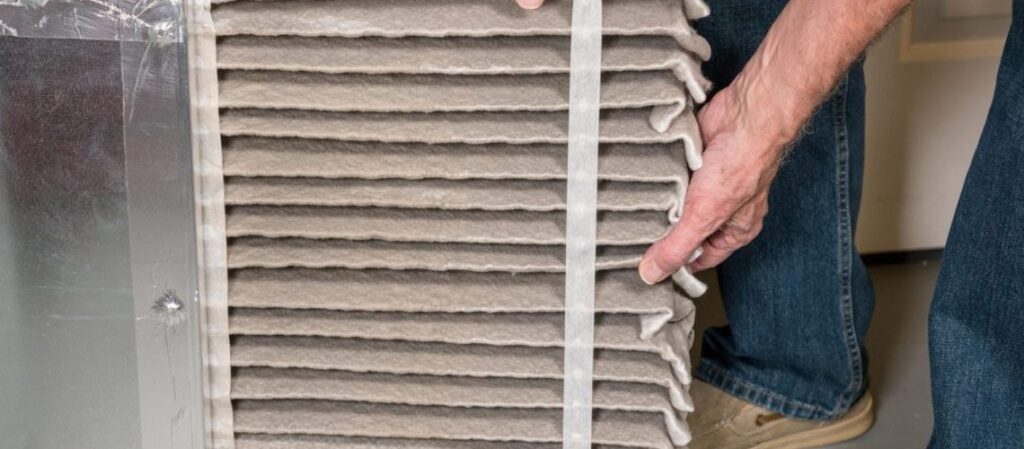Air filters are an integral component of HVAC systems that help improve indoor air quality and safeguard HVAC equipment from damage. With so many options available, selecting the correct air filter for your system can be challenging. In this article, we’ll look at critical factors to consider when choosing an air filter for your HVAC setup.
-
Minimum Efficiency Reporting Value
MERV, short for Minimum Efficiency Reporting Value, measures how well air filters capture particles in the air. The higher the MERV rating, the more particles can be captured by the filter; however, this also implies thicker and denser materials which could restrict airflow and put extra strain on HVAC systems.
Click here – 6 Modern Flat Entrance Designs for Your Homes
When selecting a MERV rating for your home, consider the air quality and needs of those living there. Families with pets or allergy sufferers may require a higher MERV rating to capture pet dander or pollen particles.
-
Material of Filter
Air filters come in various materials, such as fiberglass, pleated paper and synthetics. Fiberglass filters are cost-effective but less effective at capturing smaller particles, and Pleated paper filters offer better efficiency but at a higher price point. Synthetic materials like polyester or electrostatically charged filters are the most effective but cost more.
When selecting the type of filter material for your home, consider your budget and your household’s needs. If anyone in your family suffers from respiratory issues or allergies, investing in higher-quality just filters may be worth the additional cost.
-
HVAC System Compatibility
It’s essential to choose an air filter compatible with your HVAC system. Refer to your manual or an HVAC professional for help determining the size and type of filter best suited for your setup. An incompatible filter can reduce efficiency, raise energy consumption, or damage equipment.
-
Replacement Frequency
Air filters should be changed periodically to ensure optimal indoor air quality and HVAC system efficiency. The replacement frequency depends on various factors, such as the MERV rating and the level of pollutants in the home.
When determining how often to replace your air filter, consider both the manufacturer’s recommendations and the needs of your home. Generally, filters should be replaced every 1-3 months; however, homes with pets or high indoor air pollution levels may require more frequent replacements.
-
Environmental Impact
When selecting an air filter for your HVAC system, consider its environmental impact. Look for filters made from recyclable or biodegradable materials; some are washable and reusable, reducing waste while saving money in the long run.
Click here – The 10 best novels written in English
-
Cost
Air filter prices vary based on the type and MERV rating. While cheaper filters may appear to be a cost-effective solution, they may not be as efficient at trapping pollutants and must be replaced more frequently.
When choosing an air filter, consider both the long-term cost and benefits. A higher-quality filter may cost more upfront but can save money in the long run by reducing energy consumption and HVAC maintenance expenses.
Conclusion
Selecting the ideal air filter for your HVAC system requires careful consideration of various factors. A high-quality air filter protects your HVAC system and improves indoor air quality and promotes better respiratory health for you and your family. With the correct air filter installed in your home, you can rest easy knowing it provides a healthy and comfortable atmosphere.






